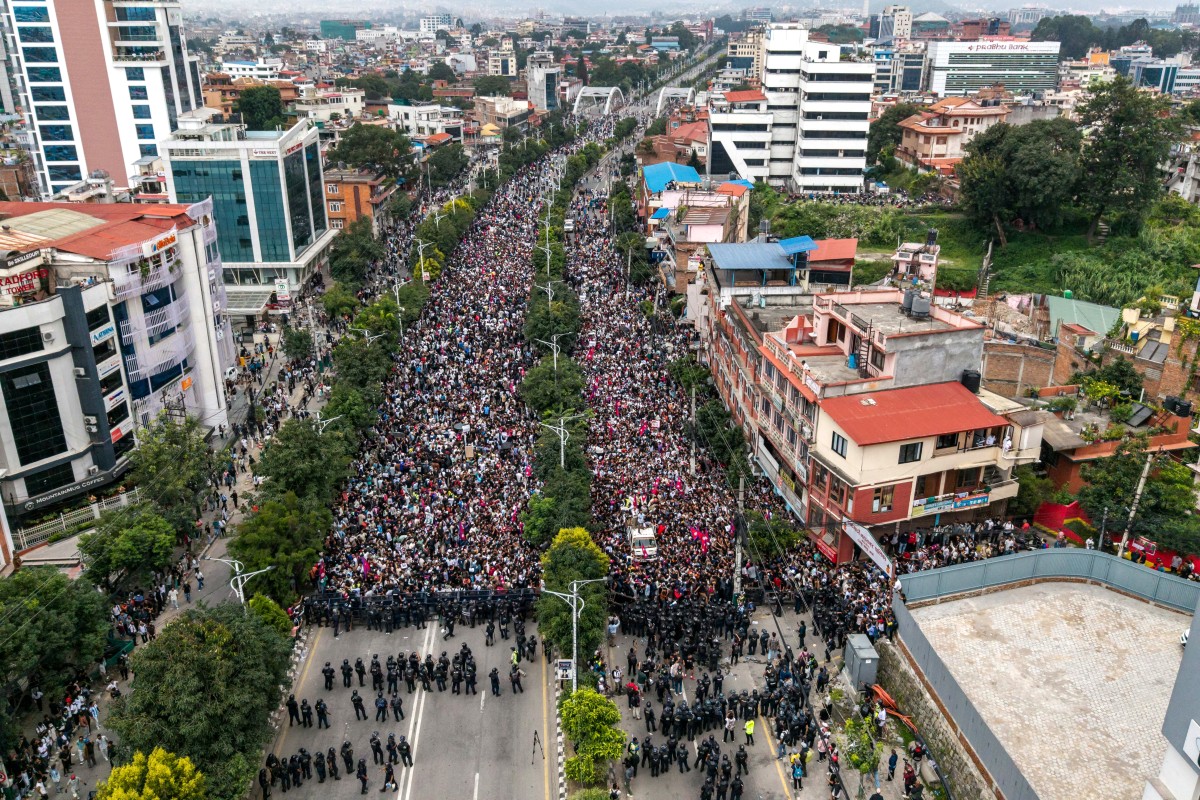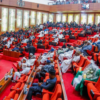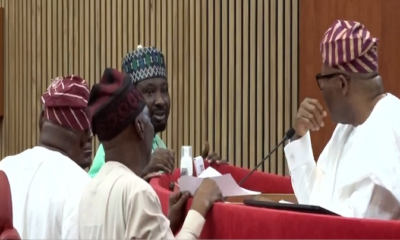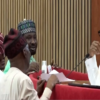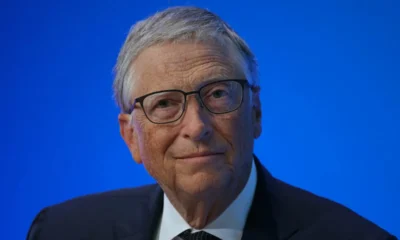International
Banning Social Media Is Easy, Fixing the Damage Is Not.
In mid-2021, Nigeria abruptly banned the use of Twitter nationwide after the platform deleted a post by the then Nigerian president. Officials claimed Twitter was being used in ways that threatened the country’s stability. The ban lasted for about seven months before it was lifted in January 2022. A few years later in 2025, Nepal’s government attempted an even broader social media shutdown, blocking 26 platforms including Facebook, YouTube, WhatsApp and others because the companies had not registered locally as required. This sweeping ban in Nepal caused chaos, sparking mass protests by young citizens and leading to at least 19 deaths in clashes with police. Both countries’ experiences reveal how shutting down social networks can carry severe economic and social consequences.
Impact on Small Businesses in Nigeria
In Nigeria, small and medium-sized enterprises (SMEs) were among the hardest hit by the Twitter ban. Many Nigerian SMEs had come to rely on Twitter as a low-cost marketing tool, a place to advertise products, reach customers and handle inquiries. Social media is a lifeline for commerce in Nigeria, where SMEs make up almost half of the country’s GDP and the vast majority of businesses. When Twitter went dark, these businesses lost a vital channel for sales and customer engagement. The suspension also sent a chilling signal to investors. Analysts warned that such a move would keep investors away and drive technology companies to friendlier markets. The Lagos Chamber of Commerce estimated that Nigeria’s seven-month Twitter blackout cost the economy around ₦10.7 trillion (about $26 billion), roughly 6% of the nation’s GDP. In short, the ban imposed a heavy economic toll on thousands of entrepreneurs who depended on social media to make a living.
Struggles of Content Creators and Freelancers
Nigeria’s growing digital economy includes countless content creators, influencers and freelancers who earn income online. For them, the Twitter ban was just as devastating. Over the past decade, thousands of Nigerians built careers through social media as online writers, photographers, influencers or social media managers, and this ban suddenly put those livelihoods at risk. Many influencers in Nigeria used Twitter as their primary platform to connect with audiences and attract paid promotions. With Twitter inaccessible, they faced an exodus of their audience. While some well-known figures could switch to other apps or access Twitter via VPN software, many of their fans and followers within Nigeria could not so easily follow them. Even if influencers themselves could afford a VPN to bypass the ban, much of their local audience was unable or reluctant to do the same, leaving creators talking to an empty room. The result was lost views, lost engagement and lost advertising deals. In effect, Nigeria’s content creators, from YouTube video makers to Twitter comedians, saw their work and income curtailed by a policy that cut them off from their own fans.
Effects on Everyday Nigerians
For ordinary Nigerian citizens, the loss of Twitter changed daily life and communication overnight. About 39 million Nigerians had a Twitter account, a user base larger than the entire population of some neighbouring countries. These users turned to Twitter not just for entertainment but also for news, job opportunities and public conversation. Suddenly, in June 2021, people woke up to find the service was not loading at all. “Twitter is like my newspaper,” one Lagos resident said, and now that newspaper was gone. Many Nigerians scrambled to install VPNs on their phones to get around the block and stay connected. But the government quickly threatened to prosecute anyone found bypassing the ban, creating an atmosphere of anxiety. The shutdown also muted a key avenue for civic engagement. Activists had used Twitter to mobilise protests and hold leaders to account, and everyday users relied on it to speak truth to power. With that avenue closed, people felt their freedom to express themselves had been stifled. “I’m scared as a Nigerian because we don’t know what’s coming next,” one young man in Lagos said, fearing that silencing Twitter was only the first step in a broader clampdown. In these ways, the ban’s social impact went beyond dollars and naira. It struck at Nigerians’ access to information and their confidence that they could openly discuss issues affecting their lives.
Nepal’s Parallel Experience
The scenario in Nepal mirrored many of these effects on a larger scale. When Nepal’s authorities shut down dozens of social apps in 2025, the disruption was immediate and far-reaching. Platforms like Facebook, Instagram and YouTube had become deeply woven into Nepalis’ everyday routines, just as Twitter was in Nigeria. A recent survey showed that 94% of Nepalis with smartphones use YouTube and 92% use Facebook. This means virtually the entire connected population was suddenly cut off from services they use daily for information, entertainment and communication. The ban caused chaos across the country, crippling businesses, choking off tourism and leaving people unable to talk with family members overseas. In a country of 30 million with a huge diaspora community, this last effect was especially painful. More than eight percent of Nepalis work abroad, many in the Gulf countries, Malaysia or India, and the money they send home accounts for about one-third of Nepal’s GDP. For families, apps like WhatsApp and Facebook are a lifeline to keep in touch with sons, daughters or spouses earning a living overseas. The social media ban abruptly severed these connections. What was meant as a get-tough policy on big tech instead felt to many Nepalis like being suddenly isolated from their loved ones around the world.
Economic Fallout in Nepal
Nepali businesses and creators felt the pinch just as acutely as their Nigerian counterparts. In recent years, social media had opened new horizons for commerce in Nepal. Small businesses, from boutiques to food vendors, used Instagram and Facebook to advertise their products and take orders. Local artists and video creators were earning income through YouTube channels and newly introduced Facebook video monetisation. These digital platforms helped level the playing field, allowing Nepali startups and even rural entrepreneurs to reach customers without a large marketing budget. All those gains were put at risk when the government pulled the plug. The timing could not have been worse, as the shutdown came right before Dashain, Nepal’s biggest festival and shopping season of the year. Dashain and the following Tihar holidays are when families spend their yearly bonuses and businesses make a significant share of their annual sales. Nepali advertisers say nearly 30% of their yearly business happens during this festive period. But with social networks suddenly offline, companies could not run their festive online campaigns and stores struggled to reach buyers. Entrepreneurs who had stocked up for the holiday sales were left stranded with inventory, and marketing agencies expecting a boom saw their campaigns evaporate. The digital shutdown cast a shadow over what should have been a season of joy and economic activity. As in Nigeria, Nepal’s tech startup scene also took a hit. The ban threatened to reverse the country’s digital progress and made foreign investors question whether Nepal’s online economy was a safe bet.
Social Consequences and Public Backlash
The social repercussions in Nepal were dramatic. With popular forums silenced, young Nepalis took to the streets to voice their anger. Tens of thousands of mostly Gen Z protesters defied the internet curbs by using alternative apps, notably TikTok, which remained online, to organise rallies. They were not only protesting the ban itself but also venting frustration at corruption and lack of opportunity, issues they had loudly discussed on social media before. The government’s heavy-handed response, including firing live ammunition at demonstrators, only intensified the outrage. “We are shocked by the killings and injury of protesters in Nepal,” the United Nations human rights office commented as the death toll rose. Facing public fury and international condemnation, Nepal’s authorities hastily withdrew the social media ban after about a week. The episode underlined how essential these platforms had become for Nepali society, not just for business and communication, but as outlets for youth activism and voices for change. Blocking them even briefly had pushed the country to the brink of upheaval.
Conclusion
The stories of Nigeria and Nepal underscore the high price that can come with banning social media. In both countries, the intent was to regulate online content or assert sovereignty over global tech companies. In both cases, the blunt instrument of a blanket ban ended up doing more harm to citizens and the local economy than to the tech platforms themselves. As one Nepali digital expert observed, such blanket bans hurt local businesses more than multinational platforms. Nigeria’s Twitter shutdown drained millions from its economy and left entrepreneurs, workers and youth scrambling to adapt. Nepal’s broader ban not only threatened livelihoods but also temporarily severed the social ties of a nation, fueling turmoil. These outcomes illustrate that social media networks are deeply embedded in modern economic and social life. Shutting them down, even temporarily, can stifle small businesses, silence creative voices, cut off families and provoke widespread unrest. The experiences of Nigeria and Nepal suggest that governments may need to find more balanced ways to address their concerns with social media, because the costs of an outright ban are felt by the very people those governments serve.
Sources
- Al Jazeera – How Nigeria’s Twitter ban stands to impact people, businesses: https://www.aljazeera.com/news/2021/6/8/nigerias-twitter-ban-to-impact-people-businesses
- Techpoint Africa – 4 ways Nigeria’s Twitter ban could affect businesses: https://techpoint.africa/2021/06/08/nigeria-twitter-ban-business/
- African Business – Nigeria lost $26bn to Twitter ban, businesses say: https://african.business/2022/01/technology-information/nigeria-lost-26bn-to-twitter-ban-businesses-say
- Nepali Times – Protest grows against Nepal’s social media ban: https://nepalitimes.com/news/protest-grows-against-nepals-social-media-ban
- The Guardian – ‘Gen Z’ protests against Nepal’s social media ban: https://www.theguardian.com/world/2025/sep/05/gen-z-protests-against-nepal-social-media-ban
- Manifest Media (Nepal) – Social media shutdown in Nepal: Impacting Dashain economy: https://www.manifestmedia.com.np/social-media-shutdown-in-nepal-impacting-dashain-economy
- Indian Express – Remittance-dependent economy: Nepal social media ban impact: https://indianexpress.com/article/world/nepal-social-media-ban-remittance-dependent-economy-9259390/
- Al Jazeera – Nepal lifts social media ban after 19 killed in protests: https://www.aljazeera.com/news/2025/9/9/nepal-lifts-social-media-ban-after-19-killed-in-protests

